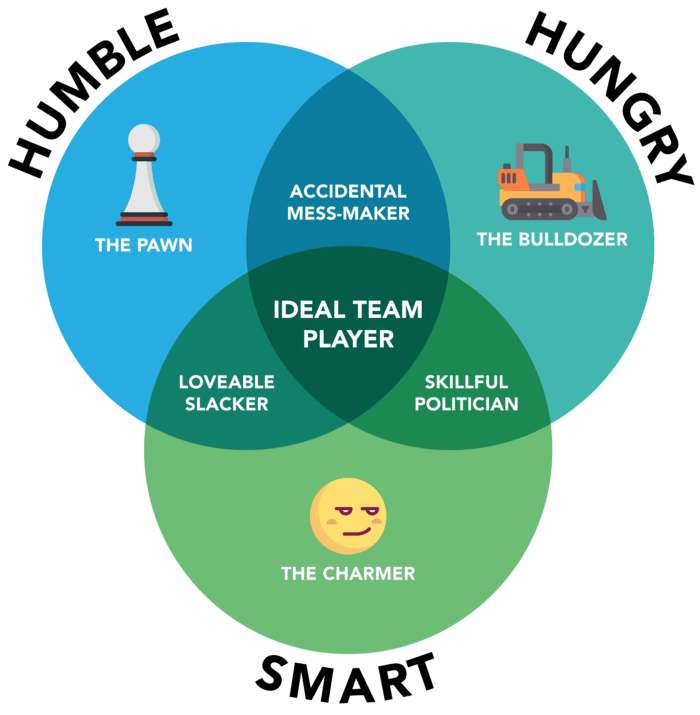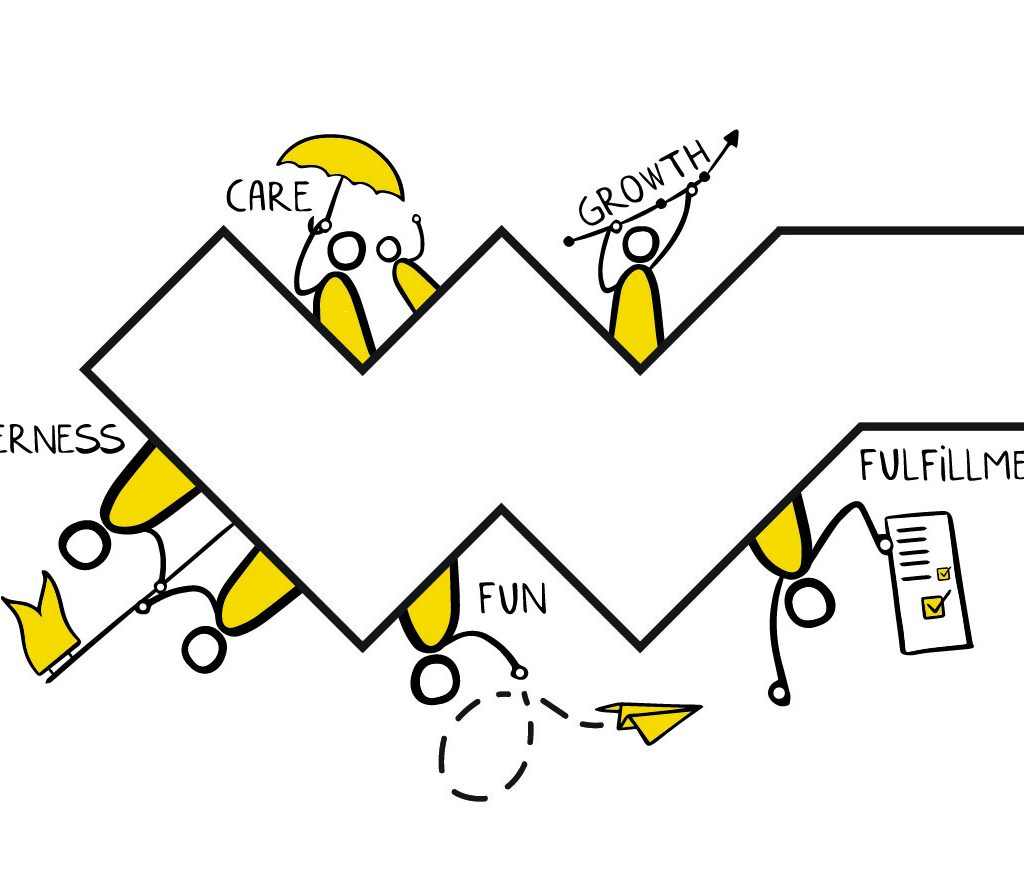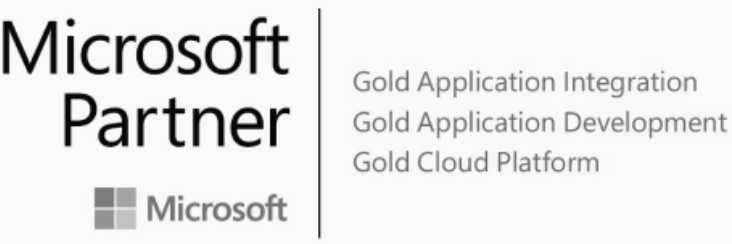At RebelDot, 2020 ended with an online event hosted by Cluj Startups, where I shared some of the most important lessons I learned in my 13 years of doing business in tech.
I know…13, might sound a little bit suspicious for some. Some won’t even open the article because of it. But this article is not for everyone — it’s for the rebels. (if you’re here, I guess you are one).
Cluj Startups is a community focused on tech/IT startups, programs, and events in Cluj-Napoca (and Transylvania). It aims to inform and support the local startup ecosystem, as well as to promote bright initiatives/opportunities for the startups in Transylvania.
In 2020, they started a series of events under the name of Startup House Meetups, inviting founders and business owners to share their experience in growing tech companies.
And that’s why I got invited.
I felt my discussion there brought value to the audience, so I decided to create an article based on it, covering the most valued 13 lessons of my career until today.
1. Be an opportunist. (No, not that kind.)
If you know me, you have, most probably, heard this story before. In 2008 I was a 4th-year student at the Technical University of Cluj-Napoca. With both my parents working in the medical field, I was already walking astray from what the normal course of things would have looked like for me.
I had been already been working for two years for Digilent Ro, the subsidiary of an American company in Cluj, Romania. As Romania seemed the suitable place to build tech products, not just because of its competitive advantages of Eastern European prices, but because of the numerous software engineers that were just leaving University, the founders of Imprezzio visited Cluj.
Since the Washington based company decided to open a subsidiary in Cluj, I saw the opportunity and got involved. They soon offered me the Romanian Operations Manager position. My first task was to bring onboard 7 developers in a couple of weeks. I started to hire my university colleagues, running interviews from various restaurants in Cluj. Looking back, it seems like I was the right person at the right time, with the right attitude.
13 years later, some of my university colleagues are still working with me.
I see today’s aspiring entrepreneurs often paralyzed by not being able to identify the right opportunities for them, when, in fact, those opportunities are there — laying in plain sight. Notice the problems around you, and see if there is a way for you to solve them.
Make change your best friend (some of your biggest opportunities will come as a result of change; I once read this:
An entrepreneur always searches for change, responds to it, and exploits it as an opportunity.
Don’t get this statement wrong. I don’t mean try anything that goes through your mind no matter how stupid it is. Try anything that you believe in and you thought out.
2. Time passing won’t increase your seniority and experience.
True. Although this is more of general career advice than a specific entrepreneurial takeaway, remember that time passing will not increase your seniority, nor your experience.
I have learned that the more you expose yourself to new experiences and tasks inside a company (be it outside your JD), the more you accelerate your personal and professional growth rate.
Today’s companies are actively looking for people that foster an entrepreneurial mindset and understand the wheels that steer a business. Stepping out of your job description for the benefit of the company will help you outnumber years of experience with actual working experience.
The more things you get involved in and more exposed you are, the more prepared you will be for the future.
“I’m not going to do this as it’s not in my job description.” In my opinion, the best line in a job description is “Anything else as needed”, and yes, you should get involved in things that are diverse and which will help you gain more exposure and experience.
3. A company is not a family.
For almost a decade, I preached the sticking similarities I found between families and employees from my company. This analogy is also one that you have most probably stumbled upon during at least one of your interviews.
The first time I started questioning the familial character of a company was the first time I had to let an employee go, based on poor performance.
Years after, I read a Tweet by Adam Grant talking about the concept of family vs community in the company. I must say I agree with him.
A company is not a family.
A company is a community, a place where people feel a sense of belonging and care about one another while working for a common goal. A family-like company is great but can be a blocker when it comes to performance assessing and cost-cutting.
I assume if one of your children does not perform as expected, you are not going to let them go due to low performance, neither value misfit.
I started a chat around this on LinkedIn, and it was interesting to see how people are embracing this.
4. Stop trying. You are not going to please everyone.
As I started my entrepreneurial journey surrounded by colleagues and friends, I always wanted to involve everyone in the decision-making process of our tiny organization. This worked for an eight people company. As soon as we reached 20 people, we couldn’t decide on where to go for our next teambuilding. This is when I realized unanimity decisions are just dreams and that voting is usually not the best mechanism for decision making.
"Give everyone the opportunity to speak up and be heard. Listen, analyze, then decide. Even if there are people who do not agree with a decision, make sure that they commit to it."
Jeff Bezos
5. You need to start letting go.
Although I started out as a software engineer, at some point I had to look at the things I was doing and let go of the things where I was not bringing that much value.
Starting small as an entrepreneur creates a scene in which you get to know, do, and be involved in everything. Before you know it, you are the best micromanager your company has seen, handling sales, finance, culture, development, recruitment… and interior design 😊.
Accepting work that is good but different than you would have done is hard, but you need to do it if you want your team to grow not having its hands and feet tied to yours. Micromanagement will get you into burnout while communicating a lack of trust in your team.
6. Offer the best service you can, and they will come back looking for more!
RebelDot is a company in which 70% of the business is referral driven. Since the beginning, we strived to offer services that give people at least one reason to refer us.
Our biggest client is the result of a small project we did years ago. I remember being on the edge of refusing the project because it was much smaller than the projects we were working on at that time.
In the first few years, we’ve grown on the services side of the business just through referral, which was happy clients referring us to other clients.
7. Who should I hire? Skill is important, but attitude is irreplaceable.
Being in the business for a long time, I can say I have been through a lot of recruitment scenarios. I hired people with great skill and the right attitude, people with great skill and awful attitudes, as well as people with little skill & the right attitude.
At RebelDot, we look for team players. Patrick Lencioni says the ideal team member is humble, hungry (driven), and smart (people-smart). I agree with him and can tell you that you should avoid skillful politicians, they are going to be a pain for your business. Good luck in identifying them!

8. Transparency vs. secrecy in a company.
A few years ago, our development fees were not transparent towards employees.
One of our developers realized his hourly net salary was 1/3 of our hourly rate and asked for his salary to be doubled.
I smiled and invited him for a chat. Breaking down the rate, I explained to him what goes into it, together with rentals, overheads, and other administrative costs.
He immediately understood and changed his mind.
I always think that if I would ever start a new company, I would go for full transparency regarding the salaries of everyone on the team.
Why?
Because when it comes to creating a healthy company culture, transparency is always better than secrecy. If people know the real value they bring to the company and the actual costs of administrating a business, it will encourage them to act responsibly towards the company.
9. Although profit is usually a result and not a purpose, make sure you watch your cashflow.
This one may seem a classic, but it is the one that hit me the most.
Your business could be bringing in massive revenues and fail next month. Does this make sense?
Not for most… but it is especially important to make the difference between cash flow, revenue, and profit.
If money goes out from your business sooner than the revenue coming in, you are in trouble.
This topic seems to be most ignored by young entrepreneurs.
I have taken part in quite a few startup contests by now and, to this day, I am amazed by how optimistic the startups are on the budget side. They never consider their and their friends’ time investment.
Besides these, all-other expenses are grossly underestimated.
It is important to be aware of cash flows and budgets as you might need to get external funding.
PS: Don’t rely on banks. They do not like startups and young businesses.
10 . Find a way to transform disaster into opportunity — resilience is key.
This has happened multiple times since I started my first business.
Probably the most remarkable moment was the end of 2017 early 2018 when, after a series of events, the USA CEO of Imprezzio informed me that the services part of the business is not attractive for them anymore… this meant that I should let go of half of my team.
That wasn’t an option for me, so I decided to buy the part of the company they didn’t want anymore.
That’s how RebelDot was born.
In business, you have to make uncertainty your friend.
Trial and error carry the precious commodity of information. The Antifragile mindset (if you are familiar with the book of Nassim Nicholas Taleb) is a unique one. Whenever possible, try to create a scenario for yourself in which randomness and uncertainty are your friends, not your enemies.
The key is to know/learn how to fail properly. Never take a risk that will take you out of the game completely. Develop the personal resilience to learn from your failures and start again.
With these two in mind, you can only fail temporarily, not permanently.
11. Friendship does not have much value in business, especially during hardships.
After having a friendly discussion with my partners and agreeing on the general terms of the split I was announced that things will be taken over by a team of lawyers and auditors. This led to a long and extremely bureaucratic 6-month process.
Before this I really thought that whatever will come up, we will find a way to agree and proceed… never have I thought lawyers and financial experts will be involved. It was immature on my side to think that way.
We are still friends today.
12. Always look at things from multiple angles. Does everyone share the same perspective you do?
Since 2018, the RebelDot holiday policy has been different than the usual holiday policies you see at typical companies in Romania.
Every employee with a lifetime of over two years in RebelDot benefits from unlimited holiday, a very similar concept to the No Holiday Policy in “Reed Hasting’s No Rules Rules” book.,
So, does unlimited holiday sound like a clever idea?
Yes… until it makes the way you pay overtime obsolete.
KPI’s fall in this category as well. Always when you create a KPI (key performance indicators) there is unwanted behavior that might appear, so make sure that before you set any goals, you look at them from multiple perspectives.
Having the ability to see things from different angles will give you the power to really understand the world around you.
13. Culture matters.
Before the company split in 2018, the company culture started to deteriorate at a rapid pace. We did a couple of wrong hires, had split focus into services and products that we were building, internal conflicts were blooming by day, and things just went downhill from a cultural perspective.
The division happened, and around 100 people parted ways.
I was left with the services division of the company. The team was great, and the future uncertain. We had a few clients inherited from the past company and we were relying on our work to be of such exceptional manner that it would attract new clients through referral.
Shortly after forming the company, we started laying down our values, defining the type of company we wanted to grow into. We had a few internal values contoured, which was a great start for building a new company culture.

Despite being COVID year 1, in 2020, 27 new employees joined RebelDot and we started 2021 with 3 new hires.
After over 2 years of existence, we are entering 2021 with almost 90 people in our team.
We had an incredible retention rate of 94% in 2020.
This was a long read, so thank you for reaching the end of my article.
Not long ago I also gave an interview on what being a rebel in tech means for me. You can also read that too if you found my thoughts insightful.
If you would like to get in touch, go and connect with me on Linkedin. I’d love to meet you see what are the most valuable lessons of your own journey.
If you would like to stay in touch with people at Cluj Startups, keep an eye on their future events.
Stay Rebel!
Books & articles I mentioned in this story: 📚






